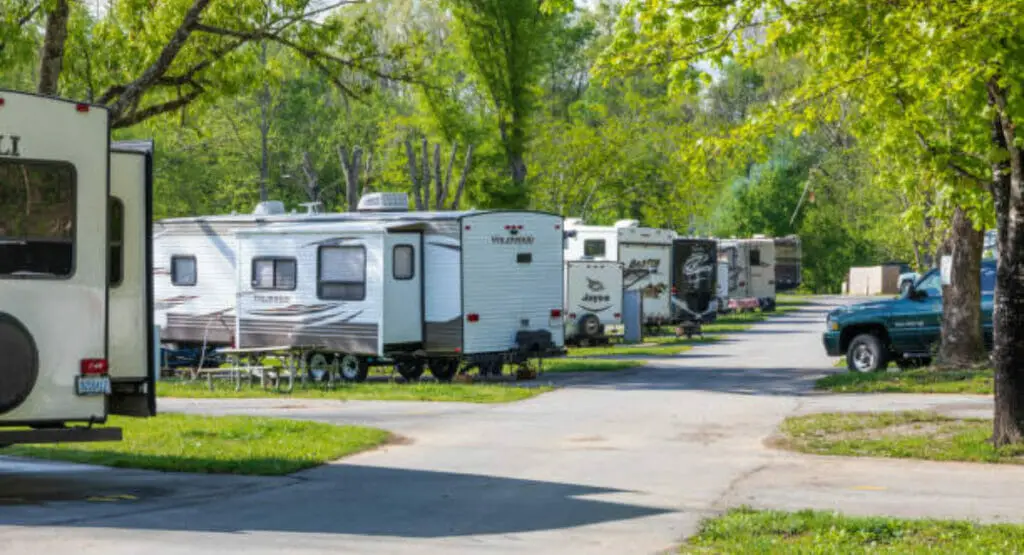RV propane alarms are critical for RV safety because they detect propane gas leaks, which can be extremely dangerous if not seen. These alarms function as early warning systems, warning occupants of potential hazards. While they do not directly turn off the power, they do provide valuable time to take appropriate action, such as ventilating the area and turning off the propane supply. Prioritizing electrical safety by inspecting wiring, outlets, and appliances regularly reduces the risk of fires and contributes to the severity of gas leaks. Does an RV propane alarm turn off the electricity? RV owners can travel with peace of mind, knowing they have taken precautions to protect themselves and their vehicles by implementing both propane and electrical safety measures.
I. Understanding RV Propane Alarms: Function and Purpose
RV propane alarms are critical safety devices that detect propane gas leaks in recreational vehicles, ensuring occupant safety and minimizing hazards. These alarms continuously monitor the air for any signs of propane gas, using sensitive sensors to detect even low levels. When a leak is detected, the alarm sounds and displays visual indicators, serving as an early warning system. Occupants can then take immediate action by identifying the source, ventilating the area, and evacuating if necessary. RV propane alarms play a vital role in preventing fires, explosions, and harmful gas exposure. However, proper installation, regular maintenance, and testing are necessary for optimal performance. Adhering to manufacturer guidelines ensures the alarms function effectively, enhancing onboard safety.
II. Interaction with Electricity
An RV propane alarm does not have the ability to directly turn off the vehicle’s electricity. However, some modern RVs have an electrical shutoff feature that can be integrated with the propane alarm system. This feature serves as an additional safety precaution. When a gas leak is detected, the power supply to certain appliances is automatically cut off, reducing the risk of fire or explosion. Although not all RVs have this integrated feature, it is an effective way to improve safety by reducing the chances of an electrical spark igniting propane gas. It is critical for RV owners to review the features of their specific RV model and consult the manufacturer’s guidelines for information on the interaction between the propane alarm and the RV. It is critical for RV owners to check the features of their specific RV model and consult the manufacturer’s guidelines for information on the interaction between the propane alarm and the electrical shutoff system.
III. Ensuring Proper Operation
Ensuring the proper operation of your RV propane alarm requires regular testing and maintenance. It is crucial to follow the manufacturer’s instructions for testing the alarm at regular intervals, typically once a month, to ensure its responsiveness in detecting gas leaks. Additionally, inspect the electrical connections of the alarm to ensure they are securely fastened and free from corrosion. Corroded or loose connections can affect the alarm’s performance. By conducting routine tests and inspections, you can ensure that your RV propane alarm is in optimal working condition, providing reliable safety measures during your travels.
IV. Additional Safety Measures
In addition to relying on an RV propane alarm, there are several additional safety measures you can implement to enhance your overall gas leak prevention strategy. One crucial step is to ensure proper ventilation within your RV. Adequate airflow helps maintain safe air quality and prevents the accumulation of propane gas. Open windows or vents, and use exhaust fans when using propane-powered appliances to facilitate the removal of any potential gas buildup.
Regular inspection of gas lines and connections is also essential. Check for signs of wear, corrosion, or leaks in the gas lines, fittings, and connections. If you detect any issues, it’s crucial to address them promptly by repairing or replacing the affected components.
It’s equally important to familiarize yourself with emergency response protocols in case the RV propane alarm activates. Have a clear understanding of how to shut off the propane supply to the RV, which may involve turning off the main propane valve or utilizing specific shut-off valves for individual appliances. Additionally, create an emergency evacuation plan and communicate it with all occupants to ensure a swift and coordinated response in the event of a gas leak.
By implementing these additional safety measures alongside an RV propane alarm, you can significantly reduce the risks associated with gas leaks and enhance the overall safety of your recreational vehicle. Prioritizing proper ventilation, regular inspections, and preparedness for emergencies will help you enjoy your RV travels with peace of mind.
Conclusion
Finally, an RV propane alarm is a critical safety device that detects gas leaks in recreational vehicles early. Although it does not directly control the electricity, it is extremely important in alerting occupants to potential hazards. In response to a gas leak, modern RVs may have integrated electrical shutoff features that can be activated. The propane alarm must be tested and maintained on a regular basis to ensure its effectiveness. You can travel with peace of mind knowing that you have taken the necessary precautions to protect yourself and your vehicle from potential hazards by understanding the function of RV propane alarms and prioritizing safety measures.



